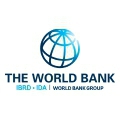


With 189 member countries, staff from more than 170 countries and offices in over 130 locations, the World Bank Group is a unique global partnership: five institutions working for sustainable solutions that reduce poverty and build shared prosperity in developing countries. The World Bank Group is committed to achieving diversity in terms of gender, nationality, culture, and educational background and maintain a diverse, highly qualified, and dedicated workforce.
Views: 3297 | This job is expired 10 months, 2 weeks ago
Terms of References
Department: SAR Climate Change and Disaster Risk Management (SSACD)
Appointment Type: Short Term Consultant
Location: Kathmandu, Nepal
Term Duration: 100 days
Required Language: English and Nepali
Start Date: July 20, 2023
End Date: June 30, 2024
Description
Do you want to build a career that is truly worthwhile? Working at the World Bank Group (WBG) provides a unique opportunity for you to help our clients solve their greatest development challenges. The WBG is one of the largest sources of funding and knowledge for developing countries; a unique global partnership of five institutions dedicated to ending extreme poverty, increasing shared prosperity, and promoting sustainable development. With 189 member countries and more than 120 offices worldwide, we work with public and private sector partners, investing in groundbreaking projects and using data, research, and technology to develop solutions to the most urgent global challenges. For more information, visit www.worldbank.org.
The WBG sees tackling climate change as critical to the pursuit of its mission. The Climate Change Action Plan 2021–2025 aims to advance the climate change aspects of the WBG’s Green, Resilient, and Inclusive Development (GRID) approach, which pursues poverty eradication and shared prosperity with a sustainability lens. The new Action Plan represents a shift from efforts to “green” projects, to greening entire economies, and from focusing on inputs, to focusing on impacts. It focuses on (i) integrating climate and development; (ii) identifying and prioritizing action on the largest mitigation and adaptation opportunities; and (iii) using those to drive our climate finance and leverage private capital in ways that deliver the most results.
Regional Context: South Asia
The South Asia Region (SAR) has the largest concentration of poor people of any region, home to 2 billion people, with over 1 billion living under $2/day. It has had high growth of 6 percent average annual rate in the last 20 years, despite its poverty, conflict, and instability. The WBG is and will continue to be a key development partner in SAR. The SAR strategy is based on three pillars promoting growth, enhancing social inclusion, and strengthening climate/environment.
South Asia is home to some of the world's countries most vulnerable to climate change and disasters. In the past decade alone, nearly 700 million people-- half of the Region's population-were affected by one or more climate-related disasters. Now, changing weather patterns are expected to impact over 800 million people by 2050 directly and will continue to burden South Asian countries’ economies. Between 2000 and 2017, disasters caused by natural hazards in the Region caused damages worth $149.27 billion. New World Bank Group South Asia Climate Roadmap aims to help the region move towards opportunities and solutions that can deliver ambitious policies and climate-resilient actions.
WORLD BANK GLOBAL PRACTICES (GPs) & CROSS-CUTTING SOLUTIONS AREAS:
Agriculture; Energy & Extractives; Environment & Natural Resources; Social; Urban, Rural & Resilience; Transport & Digital Development; Water. The 5 CCSAs are Climate Change; Fragility, Conflict & Violence; Gender; Infrastructure, PPPs & Guarantees; Knowledge Management. The new operating model is part of a broader internal reform aimed at delivering the best of the World Bank Group to our clients so that together we can achieve the twin goals of (1) ending extreme poverty by 2030, and (2) promoting shared prosperity for the bottom 40% of the population in every developing country.
THE URBAN, RESILIENCE AND LAND GLOBAL PRACTICE (GPURL):
GPURL covers a wide gamut: (i) developing green, inclusive and resilient cities; (ii) enhancing urban and rural development through supporting and managing the urban-rural transition, assisting local development through developing land tenure, management and information systems; and (iii) assisting in disaster risk management through issues of risk assessment, risk reduction (including flood management, urban drainage, coastal management, and retrofitting of infrastructure), disaster preparedness (including hydromet services, early warning systems, and civil defense), risk financing (including CAT-DDO), and resilient reconstruction (including post-disaster damage and loss assessment). A key responsibility of the GP is to provide professional expertise and operational support to other GPs to deliver sustainable development results that ensure that any adverse impacts of WBG interventions are limited and mitigated.
The South Asia Climate Change and Disaster Risk Management Unit (SSACD) is the decentralized GPURL unit responsible for managing the climate change and disaster risk management portfolio in South Asia, comprising of India, Nepal, Pakistan, Bhutan, Bangladesh, Sri Lanka and Maldives. The team comprises about 35 technical professionals who work on enabling SAR countries to shift towards a climate-resilient, low-carbon and equitable development pathway. The unit is also leading in the preparation of the multi sectoral country Climate Change and Development Reports (CCDRs). SSACD is the responsible unit for supporting SAR teams in achieving the climate co-benefits (CCB) targets which are counted as the portion of project financing that delivers either mitigation or adaptation benefits to project beneficiaries and mainstreaming Paris Alignment in World Bank operations across several sectors.
Integrating climate and development is a pillar of the WBG’s Climate Change Action Plan 2021– 2025 (CCAP). As part of the CCAP and the 2018 MDBs’ Joint Declaration, the WB has committed to aligning its operations with the Paris Agreement. This commitment applies to all financing operations approved by the WB Board starting from July 1, 2023. The Paris Agreement aims to “strengthen the global response to the threat of climate change, in the context of sustainable development and efforts to eradicate poverty”. To achieve its objective, the Paris Agreement includes, in Article 2.1(c), “making finance flows consistent with a pathway towards low greenhouse gas emissions and climate-resilient development”1. The SSACD is a key partner in mainstreaming PA in WB operations in South Asia.
COUNTRY CONTEXT: NEPAL
Nepal is highly vulnerable to climate change and natural disasters and faces both extreme and slow-onset climate-related hazards. Nepal’s climate vulnerabilities emerge from an interaction of climatic factors involving its fragile mountainous topography and ecosystems, monsoon-driven hydrology, unplanned settlements, lack of resilient infrastructure, and an economy that has sustained several shocks in the recent past (Gorkha earthquake 2015, floods in 2017, landslides, and the COVID-19). Approximately 80 percent of Nepal’s population is at risk from natural and climate-induced hazards, and Nepal ranks as the 10th most affected country in the world according to the Climate Risk Index. Vulnerable communities, particularly those living in poverty, in remote areas, and working in subsistence agriculture, are at highest risk. Earthquakes and flood risk are the most damaging natural hazards to date, while floods and landslides were the most frequent hazards over the past 40 years. Mountains are warming faster than the plains triggering the melting of ice and permafrost and an increase in the risk of landslides. Incidences of dry spells, droughts, forest fires, heatwaves, flash floods, and disease outbreaks are increasing along with slow onset risk.
Nepal is committed to addressing climate change. The government submitted a more ambitious Nationally Determined Contribution (NDC) in late 2020 with a vision to achieve socioeconomic prosperity by building a climate-resilient society. In October 2021, Nepal further raised its ambition and submitted a Long-Term Strategy (LTS) that aims to achieve net-zero GHG emissions by 2045. Nepal recognizes that adaptation is a priority and has published its National Adaptation Plan, which aims to boost adaptive capacity and resilience by setting out strategic goals for 2050. Effective devolution of climate resilience and adaptation responsibilities to provincial and local governments in Nepal is of critical importance and would require streamlining the institutional set-up with adequate financing and technical staffing, and extensive capacity building to implement climate-risk-informed development.
Duties and Accountabilities
The SSACD team is seeking a dynamic and experienced Climate Change Consultant (STC) to help deliver its mandate on climate mainstreaming.
Key responsibilities will include but are not limited to:
Selection Criteria:
Behavioral Competencies:
Contract Duration, and Reporting Line:
The candidate will be offered an initial contract of 100 days from July 20, 2023, to June 30, 2024, and the contract days can be extended within the Fiscal Year subject to satisfactory performance. The selected candidate will report to Iguniwari Thomas Ekeu-wei, Climate Change Specialist and Climate Change Focal Point for Nepal and collaborate strongly with the SSACD team and other sector colleagues in Nepal and regionally.
** Please note the that the TOR is an indicative list of outputs which are subject to change based on the needs of the program and the team **
This job has expired.
